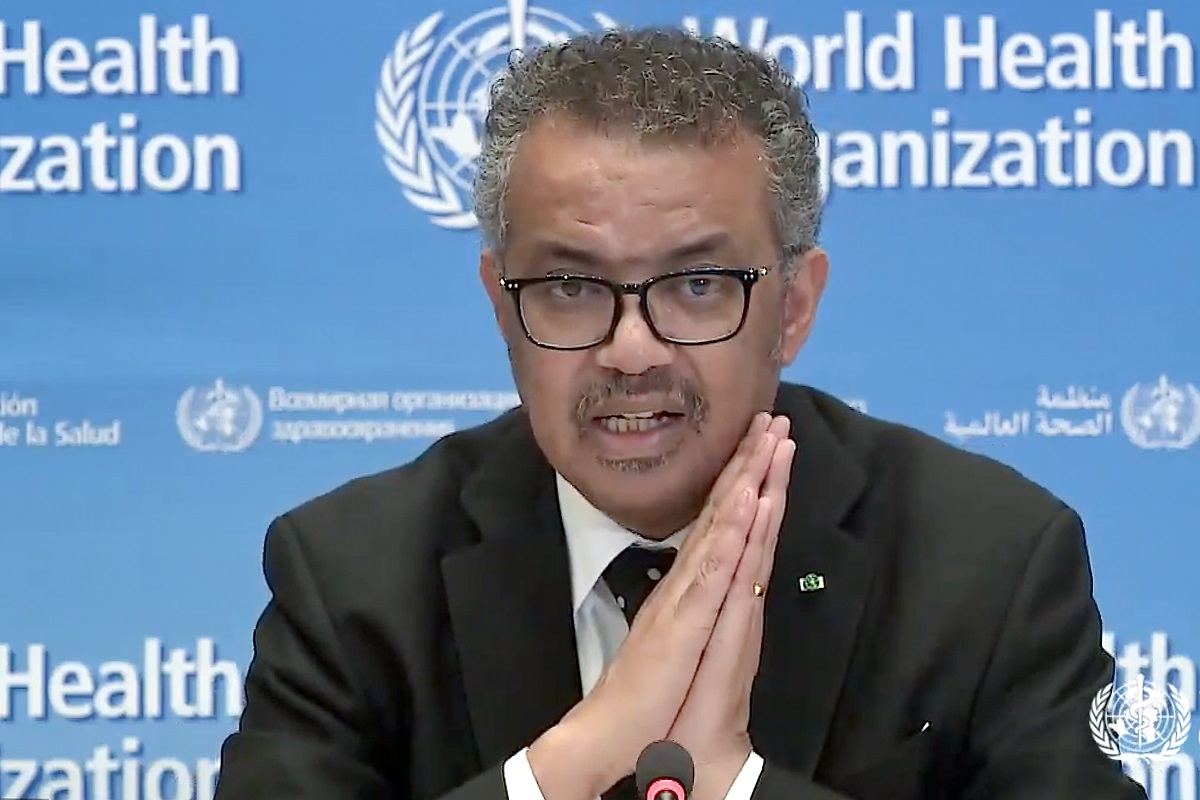My Health My Right the theme for world health day this year
World Health Day is an annual global health awareness campaign celebrated on 7 April, organised by the World Health Organization (WHO).
As lots of countries having limited resources, are testing the most severe cases, the numbers of Coronavirus cases are believed to represent only a fraction of the true number of infections.

WHO Chief Tedros Adhanom Ghebreyesus (Photo by - / AFP)
As the global death toll due to novel Coronavirus reached 16,572 on Tuesday, with more than 341,000 cases worldwide, the World Health Organization (WHO) on Monday, warned that the novel Coronavirus pandemic is clearly “accelerating” but also came with hope that it was still possible to “change the trajectory” of the outbreak.
“The pandemic is accelerating,” said WHO chief Tedros Adhanom Ghebreyesus in a virtual news briefing to journalists.
He said, “it took 67 days from the beginning of the outbreak in China in late December for the virus to infect the first 100,000 people worldwide. In comparison, it took 11 days for the second 100,000 cases and just four days for the third 100,000 cases.”
Advertisement
As lots of countries having limited resources, are testing the most severe cases, the numbers of Coronavirus cases are believed to represent only a fraction of the true number of infections.
“We are not helpless bystanders. We can change the trajectory of this pandemic,” Tedros said.
Linking the strategy to tackle Coronavirus pandemic to a football match, the the WHO chief said, “You can’t win a football game only by defending. You have to attack as well.”
“To win, we need to attack the virus with aggressive and targeted tactics,” he said, reiterating a call for “testing every suspected case, isolating and caring for every confirmed case and tracing and quarantining every close contact,” he said.
“Asking people to stay at home and other physical distancing measures are an important way of slowing down the spread of the virus and buying time, but they are defensive measures that will not help us to win,” he warned
Ghebreyesus, also acknowledged that a number of countries were struggling to take more aggressive measures due to a lack of resources and access to tests and was all praises for the great energy which has been put into research and development to find a cure for COVID-19.
But he said that “there is currently no treatment that has been proven to be effective against COVID-19,” and warned against the use of drugs not proven to work against the disease.
“Using untested medicines without the right evidence could raise false hope and even do more harm than good, and cause a shortage of essential medicines that are needed to treat other diseases,” he said.
Among other things, countries are looking at using antimalarial drugs as a treatment against the new coronavirus.
As the Coronavirus pandemic has gripped the world, countries are trying to restrict it with lockdowns. With strict lockdowns placed worldwide, one in five people in the world is currently under orders or requests to stay home. With masks, ventilators and political goodwill in desperately short supply, more than one-fifth of the worlds population was ordered or urged to stay in their homes Monday at the start of what could be a pivotal week in the battle to contain the Coronavirus in the US and Europe.
The United Nations appealed for an immediate global ceasefire, calling on an end to all armed conflicts so that the world can instead focus on fighting Coronavirus.
(With agency inputs)
Advertisement